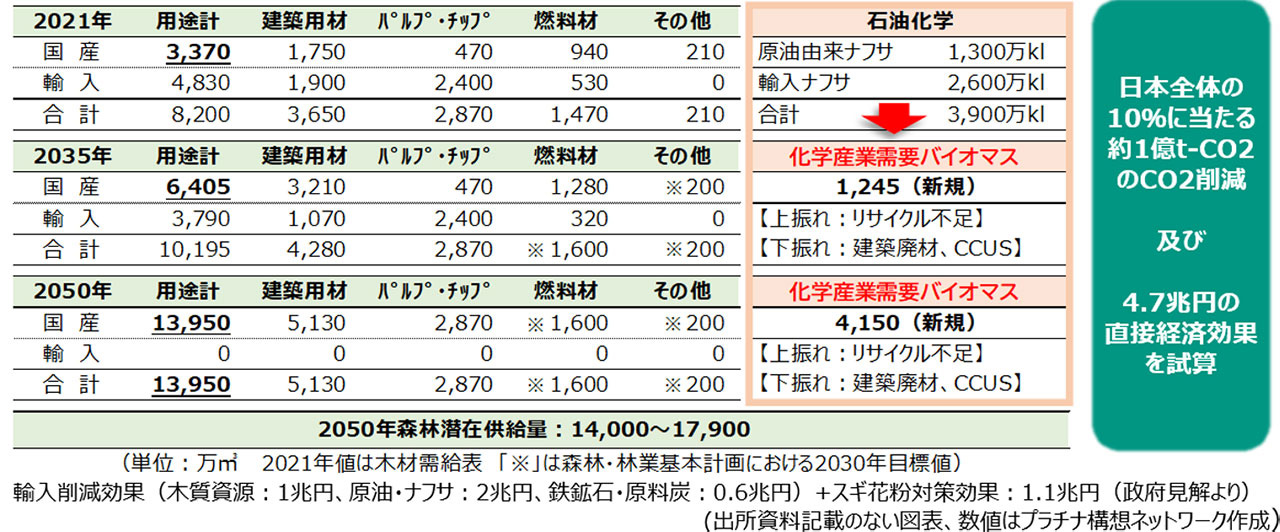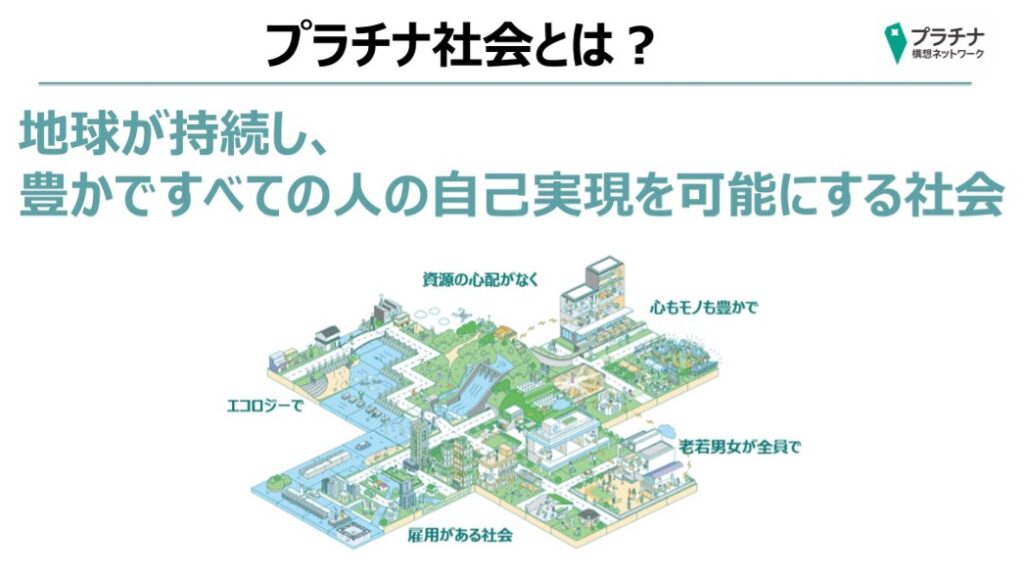The direct economic impact of fully utilizing forest resources is estimated to be 4.7 trillion yen by 2050
Updated by Kazuaki Hiraishi on June 17, 2025, 5:05 PM JST
Kazuaki HIRAISHI
(Platinum Initiative Network, Inc.
After graduating from the University of Tokyo in 1984 with a bachelor's degree in Civil Engineering, he joined Mitsubishi Research Institute, Inc. He served as Director of the Overseas Business Center, Director of the Policy and Economic Research Center, Deputy Director of the Policy and Public Affairs Division, Secretary General of the Asian Pipeline Study Group, Secretary General of the Northeast Asian Gas and Pipeline Forum, and Executive Vice President of MRI Research Associates, Inc. He has served as President of M.R.I. Research Associates, Inc. He specializes in infrastructure planning, transportation economics, and energy economics. D. in Engineering, Bachelor of Engineering (Construction).
Assuming the development of the forest circular economy described so far, we have estimated the supply and demand of woody biomass and its effects. The demand for woody biomass will expand significantly due to the development of biomass chemistry and wooden cities. If pulp and paper wood and fuel wood are also added, total domestic demand in 2050 will be about 145 million cubic meters/year, about twice the current level. On the other hand, planted forests alone can supply 140 to 179 million cubic meters in 2050, and domestic forest resources will be sufficient to cover the increase in demand.
emissions are expected to be reduced by 90 million tons of CO2 by 2050 through the replacement of naphtha derived from crude oil with biomass resources and recycling in the manufacture of chemical products, and by 10 million tons of CO2 through the replacement of iron and cement resources with wood resources in the development of wooden cities, for a total of approximately 100 million tons of CO emissions reduction is expected. This is equivalent to about 10% of Japan's current CO2 emissions. The amount of CO2 absorbed by forests would increase by approximately 6 million t-CO2 over the current level, if main forest cutting and reforestation were carried out at three times the current pace, and if all of the forests were reforested with fast-growing trees.

Economic benefits are also expected from the realization of a forest circular economy. The full utilization of domestic resources and promotion of recycling will reduce imports of petroleum resources, wood resources, iron, and other resources, resulting in a reduction of resource imports worth 3.6 trillion yen. The reduced imports will be invested domestically. The forestry industry will be revitalized, and domestic building materials and naphtha will be produced from forest resources, resulting in an added value of 3.6 trillion yen in the domestic forestry, chemical, building materials, and construction industries, which is equivalent to the import reduction. In addition, the effect of cedar pollen control measures associated with the promotion of logging and reforestation at three times the speed of conventional logging is extremely large, and based on existing studies, we believe that an economic effect of about 1.1 trillion yen will be generated. In total, we estimate that there will be a direct economic effect (increase in value added) of 4.7 trillion yen by 2050.
To conclude the general remarks, I would like to introduce the Platinum Network, the parent organization of activities to promote the circular economy of forests. Platinum Network is a general incorporated association founded and chaired by Hiroshi Komiyama, the 28th President of the University of Tokyo and Chairman of Mitsubishi Research Institute, Inc. Platinum Society" is defined as "a society where the earth is sustainable and prosperous, and all people can achieve self-fulfillment. In its activities, the organization is strongly conscious of the following two approaches.

One is "to become an advanced problem-solving nation." In the 21st century, Japan is facing various challenges ahead of the rest of the world. For example, "Japan's resources are scarce and its self-sufficiency rate is low," "the economy has been stagnant for 30 years," "the population is aging and the birthrate is declining," and "the concentration of resources in Tokyo has not been corrected, leaving the regions exhausted," are serious issues, making Japan truly an "advanced country in terms of issues. Another serious issue is the revitalization of forests and forestry, which have abundant potential but have not fully utilized their potential due to the decline of forestry management. It is important for Japan to first resolve these issues for its own sake and move from being an "advanced problem-solving nation" to an "advanced problem-solving nation. Soon, countries around the world will face similar challenges. Japan, the "advanced problem-solving nation," can serve as a model for these countries.
The other is the backcasting approach. Backcasting is an approach that envisions what the future should look like and then goes back to the present to figure out what to do from there. We believe that humanity is now at a major turning point. Since the Industrial Revolution, humans, who now have their own energy source by burning coal, oil, and other resources, have expanded their activities and increased their population. These activities have been recorded in Antarctic ice (ice cores) and in the earth's crust, and it is said that later creatures can distinguish the "Anthropocene" by examining them. If CO2 concentrations continue to rise at this rate, the Earth will become uninhabitable for humans in the near future. To deal with these problems, it is essential to envision the ideal society and consider what should be done now to realize it. The platinum society is our vision of what society should be like in 2050. (Kazuaki Hiraishi, Executive Director, Platinum Network)
The book of the same title as this web media, "Forest Circular Economy" (edited by Hiroshi Komiyama) was published by Heibonsha on August 5, 2025. The book proposes a redesign of the economy, institutions, and local communities based on the three pillars of biomass chemistry, wooden cities, and forestry innovation in the cycle of "cutting, using, planting, and nurturing" forests. This practical book provides a point of contact between concepts and examples for those involved in policy making, social implementation, and the creation of businesses that make use of local resources.
View on Amazon